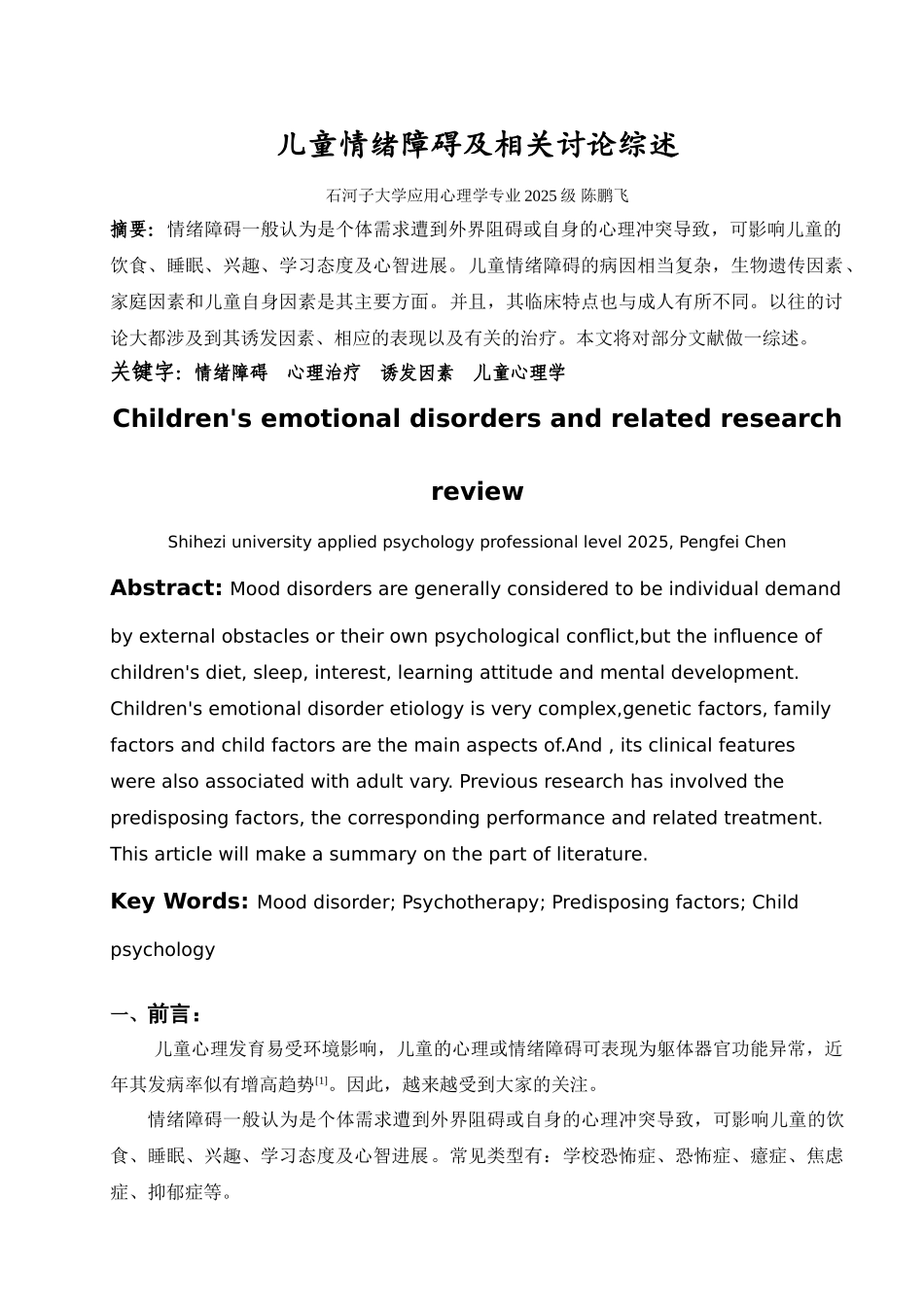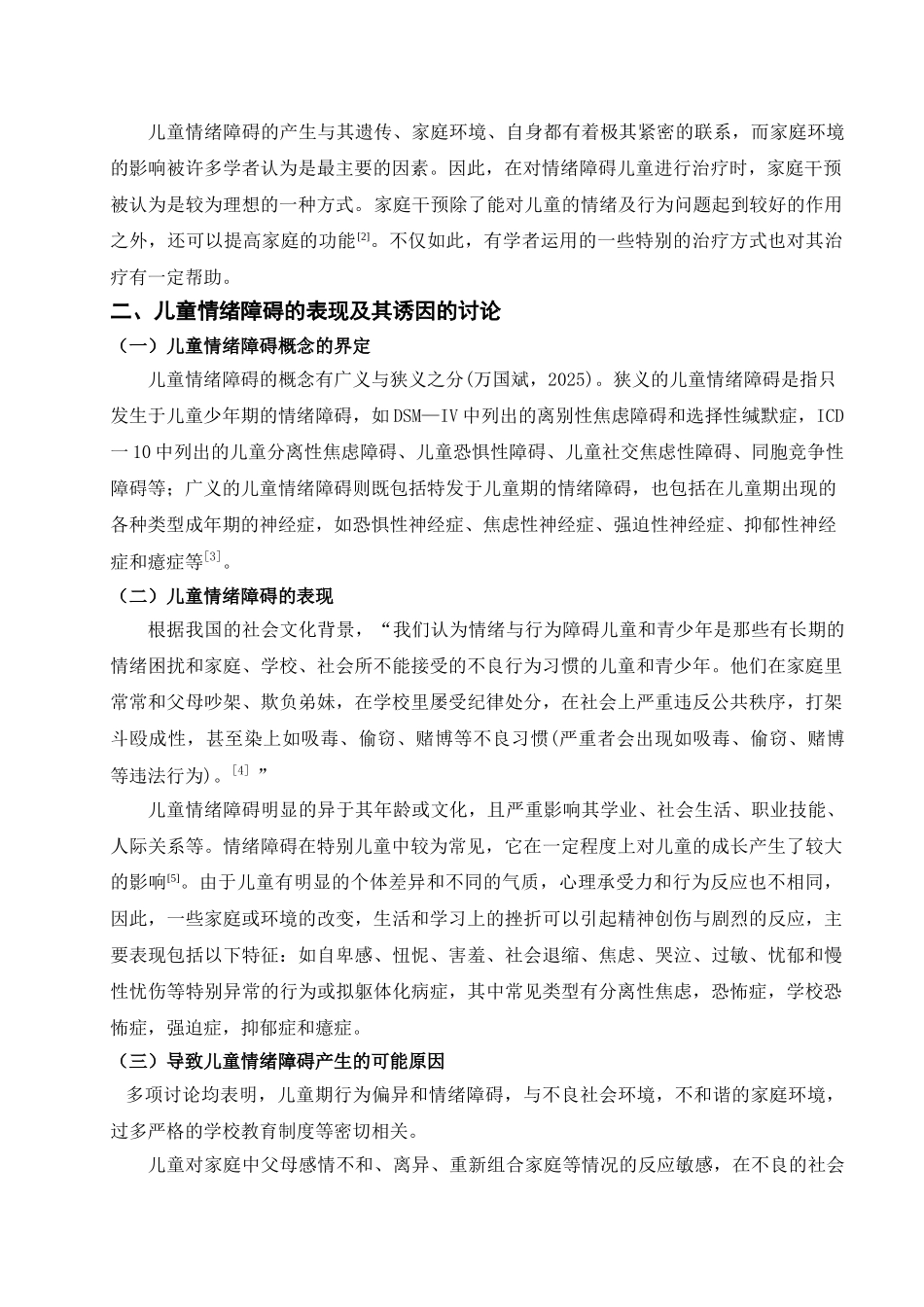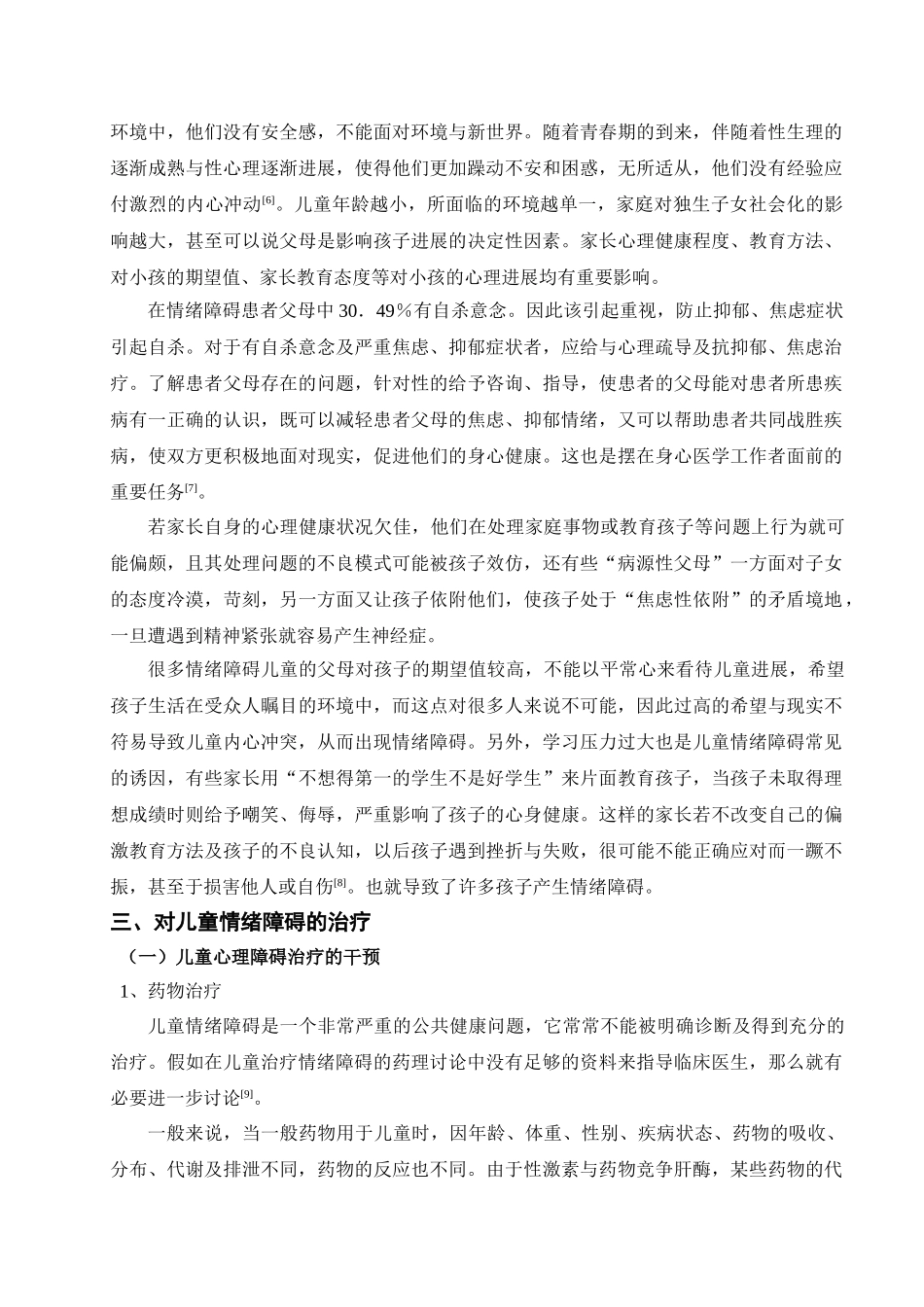儿童情绪障碍及相关讨论综述石河子大学应用心理学专业 2025 级 陈鹏飞 摘要:情绪障碍一般认为是个体需求遭到外界阻碍或自身的心理冲突导致,可影响儿童的饮食、睡眠、兴趣、学习态度及心智进展。儿童情绪障碍的病因相当复杂,生物遗传因素、家庭因素和儿童自身因素是其主要方面。并且,其临床特点也与成人有所不同。以往的讨论大都涉及到其诱发因素、相应的表现以及有关的治疗。本文将对部分文献做一综述。关键字:情绪障碍 心理治疗 诱发因素 儿童心理学Children's emotional disorders and related research reviewShihezi university applied psychology professional level 2025, Pengfei ChenAbstract: Mood disorders are generally considered to be individual demand by external obstacles or their own psychological conflict,but the influence of children's diet, sleep, interest, learning attitude and mental development. Children's emotional disorder etiology is very complex,genetic factors, family factors and child factors are the main aspects of.And , its clinical features were also associated with adult vary. Previous research has involved the predisposing factors, the corresponding performance and related treatment. This article will make a summary on the part of literature.Key Words: Mood disorder; Psychotherapy; Predisposing factors; Child psychology一、前言: 儿童心理发育易受环境影响,儿童的心理或情绪障碍可表现为躯体器官功能异常,近年其发病率似有增高趋势[1]。因此,越来越受到大家的关注。情绪障碍一般认为是个体需求遭到外界阻碍或自身的心理冲突导致,可影响儿童的饮食、睡眠、兴趣、学习态度及心智进展。常见类型有:学校恐怖症、恐怖症、癔症、焦虑症、抑郁症等。儿童情绪障碍的产生与其遗传、家庭环境、自身都有着极其紧密的联系,而家庭环境的影响被许多学者认为是最主要的因素。因此,在对情绪障碍儿童进行治疗时,家庭干预被认为是较为理想的一种方式。家庭干预除了能对儿童的情绪及行为问题起到较好的作用之外,还可以提高家庭的功能[2]。不仅如此,有学者运用的一些特别的治疗方式也对其治疗有一定帮助。二、儿童情绪障碍的表现及其诱...


